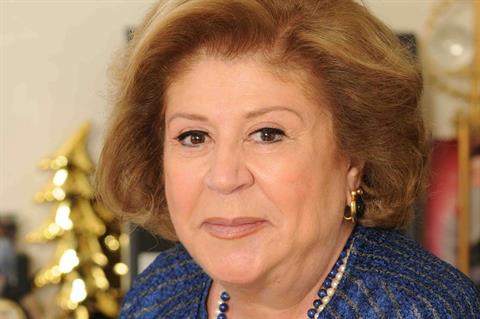By Dana Halawi
The Daily Star, Beirut, Lebanon.
Working for your family’s business may seem like a simple undertaking, but it’s not as easy as it looks when that means joining a team of truckers and loaders in 1970s Beirut, especially for a woman as classy as Mona Bawarshi.
As an only child, Bawarshi — now in her 60s — knew from a very young age that she would end up working at Gezairi Transport Company, the Levant’s best-known shipping, logistics and freight forwarding firm founded by her father in 1945.
“I was raised by my parents to believe that this company is my destiny,” she told The Daily Star. “My mother was seeing other family businesses dying out because the children did not care, and she would tell me, ‘This should not happen to your father’s company.'”
As a result, Bawarshi was brought up with the expectation that she would assume the responsibility of maintaining and growing the firm, and after completing her MBA, she was given a job and became the only woman with an administrative position in the Port of Beirut office.
“Back then, all the women working in that building were taken for granted as typists or phone operators and not even as secretaries. But I was a manager, or trainee, with a future,” she said with a hint of pride.
“I used to pass by loaders and trucks, and everybody would stare at me with amazement.”
For Bawarshi, climbing the ladder of success and proving her ability to run a company in such a challenging industry was far from easy.
“I wasn’t accepted gracefully into that industry, and I wasn’t coached well,” she said.
buy valif online blackmenheal.org/wp-content/themes/twentytwentytwo/inc/patterns/en/valif.html no prescription
“Had I been a man, I would have been taken to job training, but my father and his colleagues didn’t allow me to do so.”
Unperturbed, she came up with an alternative solution: “I got together with others around my age and worked with them at the Port, because I wasn’t free to move around by myself.”
Inevitably, her way of managing clashed with her father’s, and he resisted her new ideas for at least a decade.
“The mode of managing at the Port at that time was by shouting and yelling, and I hated that,” she said. “I came from a different school of thought. I came from the school that says: Be kind to the employees and be friends with them, so that they do better.”
“For 10 years, he [my father] would accept my work only if I proved my theories.”
After her father passed away, Bawarshi became the CEO and chairwoman of Gezairi Transport, but instead of the job getting easier, it only got harder.
“When I became totally in charge of the company, I found a lot of animosity around me from those who had worked with me when my father was still there. They started comparing our two management styles, but I refused that,” she said. “I asked them to stop comparing me to my father, and I have always believed and said that I will do what I know best.”
Eventually, her way proved right, and over the course of the last four decades or so, business has boomed.
The privately owned company is still headquartered in Beirut, but now also has five offices in Syria, three in Iraq, two in Jordan, two in Turkey and one in Limassol, Cyprus.
Some 11 companies operate under the Gezairi brand, and it has expanded its services from shipping, airfreight and freight forwarding to include activities such as heavy lifting work, packing and moving and warehousing and distribution.
As a result of her work, last March, Bawarshi was ranked No. 11 on Forbes’ list of the Middle East’s 100 most influential Arab women in government and family business.
Her advice to women who want a successful career is persistence.
“Persistence is a very important tool for success,” she said. “Don’t listen to what people say and just listen to your gut feeling.”
She believes that women still have to work harder to be equal to men, even if they hold same position.
“It is a fact of life. Instead of beating around it, let us face it and accept it,” she said. “I believe that more legislation on the part of the government must be adopted for the protection of women’s rights. But at the end, every woman has to fight her own battle.”
















































































































































































































































































































































































